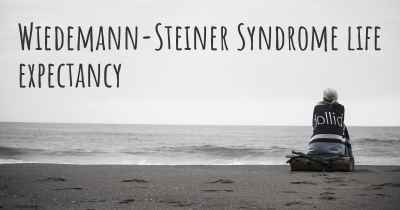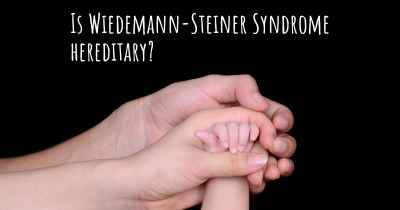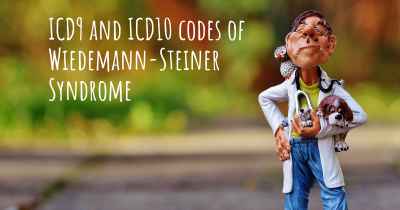1
Which are the symptoms of Wiedemann-Steiner Syndrome?
See the worst symptoms of affected by Wiedemann-Steiner Syndrome here

There seems to be a fair amount of phenotype variation among those having Wiedemann-Steiner Syndrome (WSS) single-nucleotide polymorphisms (SNPs). SNPs are genetic variants of a gene among a population, sometimes occurring as the result of a newly-generated mutation.
Though it's possible this phenotypic variation is the result of differences in the details of exactly which nucleotide in the affected gene is modified, it's far more likely (IMNSHO) that the phenotype variation is the result of co-dependence effects from other, normally non-pathological, genetic variation in WSS individuals. We know that the WSS gene codes for a protein that serves as catalyst that is part of the human epigenetic metabolism/machinery. So it would make sense that dozens, maybe hundreds, or even thousands of other genes might have their expressions modified. And that, in turn, would likely have far-reaching impact on affected individual's phenotype.
AFAIK, the following may be the worst symptoms of WSS, ranked roughly in order of severity and/or long-term consequences; (this is mostly based upon what we've seen with my son, who seems to be more severely affected that average, and what I've read):
- Impaired intelligence
- Impaired speech, sometimes the complete or near absence of speech, and impaired language skills
- Hypotonia as infants
- Impaired coordination
- Partial cortical blindness may be present
- Inability to understand many safety issues
- Danger of elopement
- Lack of understanding that their actions may inadvertently harm someone nearby
- Inability to chew can sometimes be present
- Multiple food sensitivities
- Sensitivities to artificial food dyes
- Sleep apnea may be present (both obstructive due to hypotonia and central due to nervous-system imairment)
- GERD due to hypotonia as infants
- Delayed motor milestones as infants
On the plus side, affected individual often seem to have a happy disposition.
Though it's possible this phenotypic variation is the result of differences in the details of exactly which nucleotide in the affected gene is modified, it's far more likely (IMNSHO) that the phenotype variation is the result of co-dependence effects from other, normally non-pathological, genetic variation in WSS individuals. We know that the WSS gene codes for a protein that serves as catalyst that is part of the human epigenetic metabolism/machinery. So it would make sense that dozens, maybe hundreds, or even thousands of other genes might have their expressions modified. And that, in turn, would likely have far-reaching impact on affected individual's phenotype.
AFAIK, the following may be the worst symptoms of WSS, ranked roughly in order of severity and/or long-term consequences; (this is mostly based upon what we've seen with my son, who seems to be more severely affected that average, and what I've read):
- Impaired intelligence
- Impaired speech, sometimes the complete or near absence of speech, and impaired language skills
- Hypotonia as infants
- Impaired coordination
- Partial cortical blindness may be present
- Inability to understand many safety issues
- Danger of elopement
- Lack of understanding that their actions may inadvertently harm someone nearby
- Inability to chew can sometimes be present
- Multiple food sensitivities
- Sensitivities to artificial food dyes
- Sleep apnea may be present (both obstructive due to hypotonia and central due to nervous-system imairment)
- GERD due to hypotonia as infants
- Delayed motor milestones as infants
On the plus side, affected individual often seem to have a happy disposition.
Posted Apr 20, 2017 by Mike 420
The symptoms of Wiedemann-Steiner syndrome are global developmental delays, unusual facial features, short stature, reduction in muscle tone (hypotonia), sleeping difficulties, feeding and digestion complexities, dental issues, hairy backs and/or elbows, long eyelashes, etc.
Posted Jan 16, 2018 by anonymous 3980








